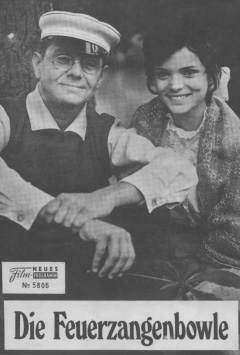This article needs additional citations for verification .(June 2019) |
| Die Feuerzangenbowle | |
|---|---|
 Film poster, 1970 | |
| Directed by | Helmut Käutner |
| Written by |
|
| Edited by | Jane Seitz |
Release date |
|
| Country | West Germany |
| Language | German |
Die Feuerzangenbowle is a 1970 West German film based on the book of the same name and a remake of the 1934 and 1944 films. This version of was part of a number of 1970s films concentrating on the theme of modernizing the school system. It was much less successful than its predecessors.